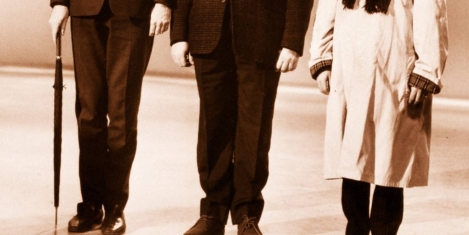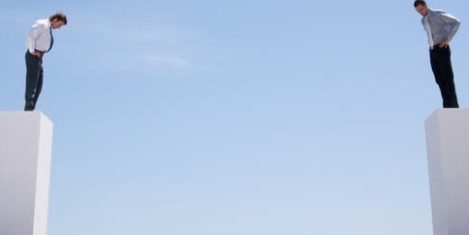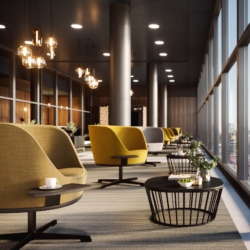To provide the best experiences, we use technologies like cookies to store and/or access device information. Consenting to these technologies will allow us to process data such as browsing behaviour or unique IDs on this site. Not consenting or withdrawing consent, may adversely affect certain features and functions.
The technical storage or access is strictly necessary for the legitimate purpose of enabling the use of a specific service explicitly requested by the subscriber or user, or for the sole purpose of carrying out the transmission of a communication over an electronic communications network.
The technical storage or access is necessary for the legitimate purpose of storing preferences that are not requested by the subscriber or user.
The technical storage or access that is used exclusively for statistical purposes.
The technical storage or access that is used exclusively for anonymous statistical purposes. Without a subpoena, voluntary compliance on the part of your Internet Service Provider, or additional records from a third party, information stored or retrieved for this purpose alone cannot usually be used to identify you.
The technical storage or access is required to create user profiles to send advertising, or to track the user on a website or across several websites for similar marketing purposes.
 Companies are searching for ways to reinvent the office and give employees reasons to return to their workplace and a new report by JLL says the focus must be on the workforce. The report, Reimagine: the new future of work to shape a better world predicts that the future of work will involve companies prioritising the health, wellness and mental well-being of employees. (more…)
Companies are searching for ways to reinvent the office and give employees reasons to return to their workplace and a new report by JLL says the focus must be on the workforce. The report, Reimagine: the new future of work to shape a better world predicts that the future of work will involve companies prioritising the health, wellness and mental well-being of employees. (more…)







 A new report by
A new report by 
 Research by
Research by 


 Unemployed over 50s are two and a half times as likely as younger age groups to be out of work for at least two years, according to new analysis from
Unemployed over 50s are two and a half times as likely as younger age groups to be out of work for at least two years, according to new analysis from 
 According to a recent
According to a recent 
 New data analysis by web design and development agency
New data analysis by web design and development agency 
 New research by
New research by 


 Employers are failing to identify and tackle potential age bias in their recruitment process, with most employers interviewed not seeing it as a ‘problem’ in their organisation, according to a new report by the
Employers are failing to identify and tackle potential age bias in their recruitment process, with most employers interviewed not seeing it as a ‘problem’ in their organisation, according to a new report by the 







January 21, 2021
Hybrid working gives managers the chance to excel
by Paul Jewitt-Harris • Comment, Flexible working